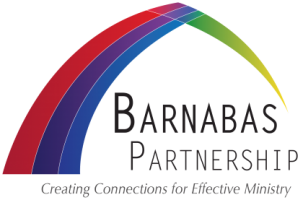
By: Rev. Jerry Chiles
The excitement surrounding the solar eclipse reminds me of another celestial event from long ago. The Magi discovered a star, and using the information they had, they set out to find a new king. Where would be the logical place to look for the Jewish child king? The obvious answer is in the court of the current ruler, Herod. We know now it may have been a mistake to ask Herod. However, by asking Herod they found the directions they needed.
They followed the new directions, found the child, and presented their gifts. Their mission was complete. but to protect their mission they returned home without telling Herod the child’s location.
In our ministries we are faced with many decisions. How can the story of the Magi help us today?
- They were prepared.
- They were diligent.
- When the time came, they asked for directions.
- They discerned how much advice to use.
Why is it hard for us to ask for directions? In a Church Answers article by Sam Rainer, ‘Why Pastors Struggle to Ask for Help (And How to Get Past It)’ we find some reasons we don’t ask for directions: The following are highlights from the article.
The fear of vulnerability. Insecurity can cause someone to think receiving help is a sign of weakness.
The veneer of control. When pastors believe they are self-sufficient, asking for help signals they no longer have the strength to be independent.
The concern of rejection. When you have anxiety, a negative experience can decimate your self-confidence.
The excessiveness of empathy. Excessive empathy causes you to assume the emotions of others before they even have a chance to respond.
The past experiences of being burned. Unfortunately, many pastors have asked for help previously, only to receive poor treatment from their churches.
The discouragement of perceived failure. When you don’t believe your leadership has been successful, asking for help can feel like another thing to pile on the heap of failure.
As we mull over these reasons, can we identify any in our lives?
How do we overcome the reasons we have identified?
In an article in the Harvard Business Review, Why It’s So Hard to Ask for Help Manfred F.R. Kets de Vries lists some ideas shared with a client: The following are highlights from the article.
Seek counsel. The client was always giving support but never expecting to get it from others. He worked to build her self-confidence and self-awareness and got her to accept that she would burn out if she didn’t ask for help.
Reframe. The client also needed to reframe the problems. He wanted her to see asking for assistance not as burdening her husband or colleagues but as giving them an opportunity to step up and contribute to the success of the family or the team.
Take a SMART approach. SMART is an acronym for specific, measurable, achievable, relevant, and time-bound. A SMART request will detail the help you need, explain why you need it, suggest steps the people you’re asking could take, ensure that it’s within their ability to do so, and spell out when you need things done by.
Communicate. The client’s stoicism was making it hard for others to get to know her. He recommended that she spend more casual time with her coworkers. Those conversations might pave the way for a mutual problem-solving session or for a peer to become more actively involved on her behalf.
Practice. As with any other skill, asking for help gets much easier with practice. Interestingly, as she started reaching out to people, she was initially surprised by their eagerness and ability to give her the help she needed.
“Asking for help is not a sign of weakness. To the contrary, it can be one of the more courageous things you can do. It can also improve your relationships and free up time for you to focus on your most mission-critical tasks at work and at home. So don’t make the mistake of always trying to go it alone. Be smart enough to know when you need help and to ask for it effectively.”
Which of the above did the Magi exercise? Which will you work to implement in your ministry this week?
These thoughts are from Rev. Jerry Chiles, one of our partners in ministry for the Raleigh-Durham, North Carolina Metroplex. He has served in various churches across the Southeast as an associate minister. Contact him for more information about how he can help you.
